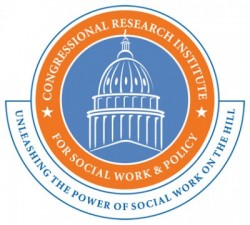The news has been chilling this week. Two unarmed young black men were killed by police officers in a St. Louis suburb and in the city of Los Angeles. We also got word that American icon Robin Williams took his own life after years of battling severe depression and substance abuse. The tragedy is that none of these men should have died. The circumstances surrounding the shooting of 18-year-old Michael Brown in Ferguson County remain disputed with only the eyewitness account of his friend on record thus far. Ferguson County police have yet to release the identity of the officer who shot Brown. Monday in Los Angeles, 25-year-old Ezell Ford was shot and killed by police officers. Family members said he suffered from mental illness and was not resisting at the time of his death. And, millions were stunned when the news broke that 63-year-old Robin Williams tragically ended his life.
These events are chilling reminders of the finiteness and fragility of life. Young black men are dying every day—usually at their own hands. Some say that is a form of suicide—that life loses its value when hope for a meaningful existence all but fades away. Young black men learn to hate and devalue themselves to point where shooting another black youth can be done without any compunction.
 The two shootings by police are a reminder that race still matters in America. The election of Barack Obama as the 44th President of the United States supposedly ushered in a new era of color-blindness as the ultimate glass ceiling had been broken. President Obama had been elected not once, but twice. That should be enough evidence that racism was no longer a factor in America—that it was time to close the door on that ugly and disgraceful chapter in our history. But no, it seems that racism and the hopelessness caused by racial disparities in opportunity and accomplishment has reared its ugly head again.
The two shootings by police are a reminder that race still matters in America. The election of Barack Obama as the 44th President of the United States supposedly ushered in a new era of color-blindness as the ultimate glass ceiling had been broken. President Obama had been elected not once, but twice. That should be enough evidence that racism was no longer a factor in America—that it was time to close the door on that ugly and disgraceful chapter in our history. But no, it seems that racism and the hopelessness caused by racial disparities in opportunity and accomplishment has reared its ugly head again.
Reading some of the hateful comments in response to news articles about young Mr. Brown’s death is a reminder of how frightful it still is to be black in some parts of this country. Seeing the riots and looting that followed an unwarranted show of force by police at what started out as a peaceful rally, reminded me of the aftermath of Rodney King’s beating at the hands of the Los Angeles police. Having been in the city shortly before the King incident, I knew that the fire and rage in the streets had little to do with Rodney King but that the incident had lit aflame the smoldering anger that existed in LA after a Korean storekeeper was acquitted of fatally shooting a young black girl in the head for allegedly stealing a container of juice.
The shooting of unarmed Michael Brown ignited the anger that had been smoldering in Ferguson County for decades. Stoked by the distrust and hatred that has been building up between the black community and white police, Michael Brown’s shooting death lit the fuse. Readers’ comments following the news accounts about the riots and looting were vile and hateful. While no argument can be made to justify unlawful acts, some of the most vicious comments described people who did not deserve to live. Michael Brown was one of them. Reading those comments made me sick to my stomach and took my thoughts back to how as a kid I could never understand what made white people lynch black people. I read the comments because I wanted to know what people were thinking. It seemed both rioters and commenters alike were losing their minds.
Which brings us back to Robin Williams. He was loved by millions. While it was reported that he worried about finances, he knew he could always find work. He had family. He had friends. It seemed inconceivable that he would be depressed about anything. Such is the nature of depression. It is not readily explained. We do not always know why people become severely depressed and there is no one-size-fits-all treatment. The Mayo Clinic says mental illness “. . . refers to a wide range of mental health conditions — disorders that affect your mood, thinking and behavior. Many people have mental health concerns from time to time. But a mental health concern becomes a mental illness when ongoing signs and symptoms cause frequent stress and affect your ability to function.
Sort of describes what going on in our government these days. Clouded thinking seems to be the order of the day. Right thinking people would be able to compromise and develop solutions that would help better the country and its citizens. These deaths can be redeeming if they make us take a hard look at what our society has become and to understand the need to place greater attention on mental wellness.
Written By Charles E. Lewis Jr., Ph.D
Are We All Losing Our Minds? was originally published @ Congressional Research Institute for Social Work and Policy » Charles Lewis and has been syndicated with permission.
Our authors want to hear from you! Click to leave a comment
Related Posts






